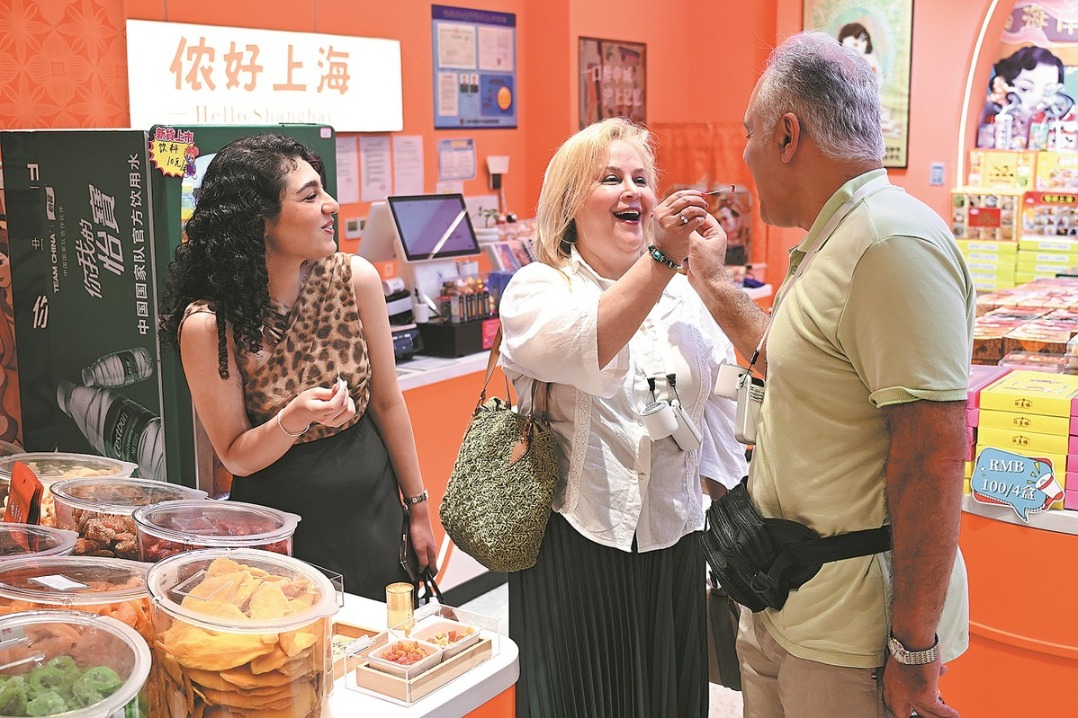Restaurateur relief as diners return to tables
Pandemic dealt major blow to industry but recovery beginning as firms adapt

China's once sluggish catering market is steadily recovering from the COVID-19 pandemic, with a transformation reshaping the industry's landscape, according to a recent report.
The report on the Chinese food and beverage market, released by the China Cuisine Association in late January, shows that catering businesses in the country generated nearly 4.7 trillion yuan ($743.47 billion) in combined revenue last year, increasing 18.6 percent from 2020.
Among local markets, Guangdong, Sichuan and Zhejiang provinces saw their catering industry restored close to the level before the outbreak.
Hainan, Hubei, Shanxi and Sichuan provinces, as well as Beijing and Chongqing municipalities, all reported a year-on-year increase of more than 30 percent in catering business revenue in 2021, according to the report.
"Currently, our business operations are not bad," Yuan Yikuan, board chairman of the 0317 Chicken Hot Pot franchise based in Hebei province, told International Business Daily. The company runs six restaurants and has more than 210 franchises throughout the country.
Yuan is optimistic about the market prospects. "Any type of catering business has development opportunities," he said. "More capital firms have recently turned their eyes to the catering sector."
Juewei Food, a Hunan-headquartered company that was listed on Shanghai Stock Exchange in 2017, announced on Jan 29 that the Hefu Noodle chain restaurant, in which Juewei's wholly-funded subsidiary has a stake, plans to go public abroad.
The Yangguofu fast-food franchise from Shanghai has applied for an initial public offering in Hong Kong.
Another six catering businesses are preparing themselves for being publicly traded in the capital market.
In sharp contrast with these strong-performing industrial players, some catering businesses are still struggling for survival.
Hotpot chain Haidilao announced on Monday that it suffered an estimated loss of 3.8-4.5 billion yuan in 2021. It is the first year that it incurred an annual loss since it listed in Hong Kong in 2018.
One of the main reasons for the loss is its rapid expansion in the market.
The hotpot restaurant's number expanded from 146 in 2015 to nearly 1,300 in 2020, with 530 of the outlets added to its network in 2020. Affected by the pandemic, the new outlets failed to bring in as many profits as expected. As a result, the company shut more than 300 of them in 2021.
Like Haidilao, a chain of catering businesses have scaled back their business operations. Some 885,000 restaurants in the country were closed in 2021, International Business Daily cited Qcc, an online platform for business data, as saying.
In addition to the closures, the pandemic's recurrence and developments, as well as problems in Haidilao's internal management, have contributed to its loss, according to the company.
Industry analysts said the rise in labor, raw food costs and condiments, as well as rents, posed a challenge for businesses. The reduction in dine-in customers out of pandemic fears has also spurred catering service providers to adapt their development strategies and find a way out.
Coffee chain Starbucks and fastfood chain restaurants KFC and McDonald's have all been reported increasing prices in response to the rise in costs.
A new set of policies, released by 14 central government departments earlier this month, offer support for the service industry to help it weather the difficulties.
Seven of the policies are designed for catering businesses. They call on offering subsidies for pandemic prevention and control, reducing charges for takeout service platforms and expanding finance channels.

Today's Top News
- China and EU should strive for dynamic equilibrium through shared development: China Daily editorial
- Xi extends condolences to Putin over plane crash in Russia
- What's behind Nvidia's charm offensive?
- Xi urges China and EU to strengthen bilateral relationship for a brighter future
- China's basic medical insurance covers 95% of population
- Summit seen as opportunity to strengthen ties






























